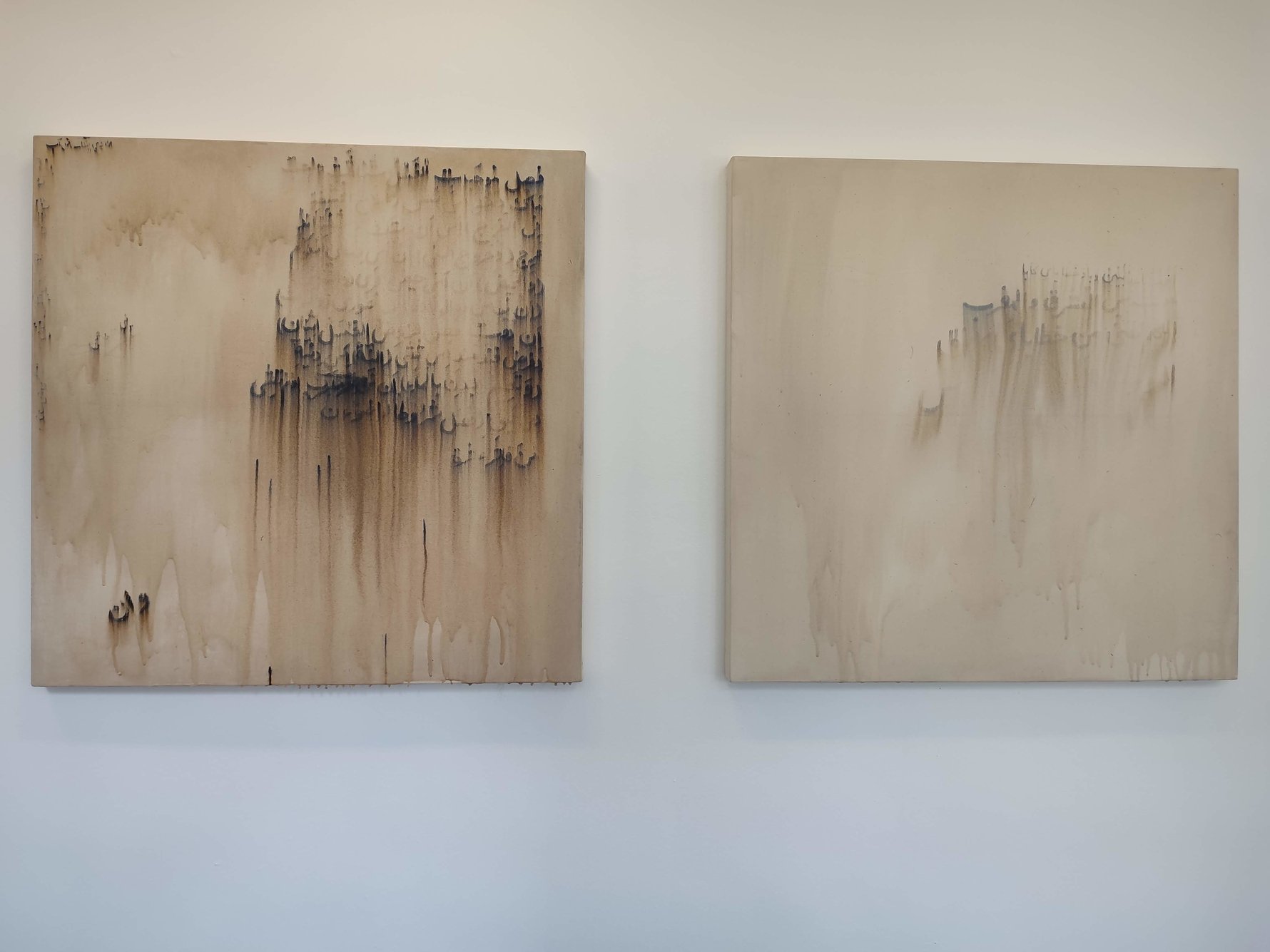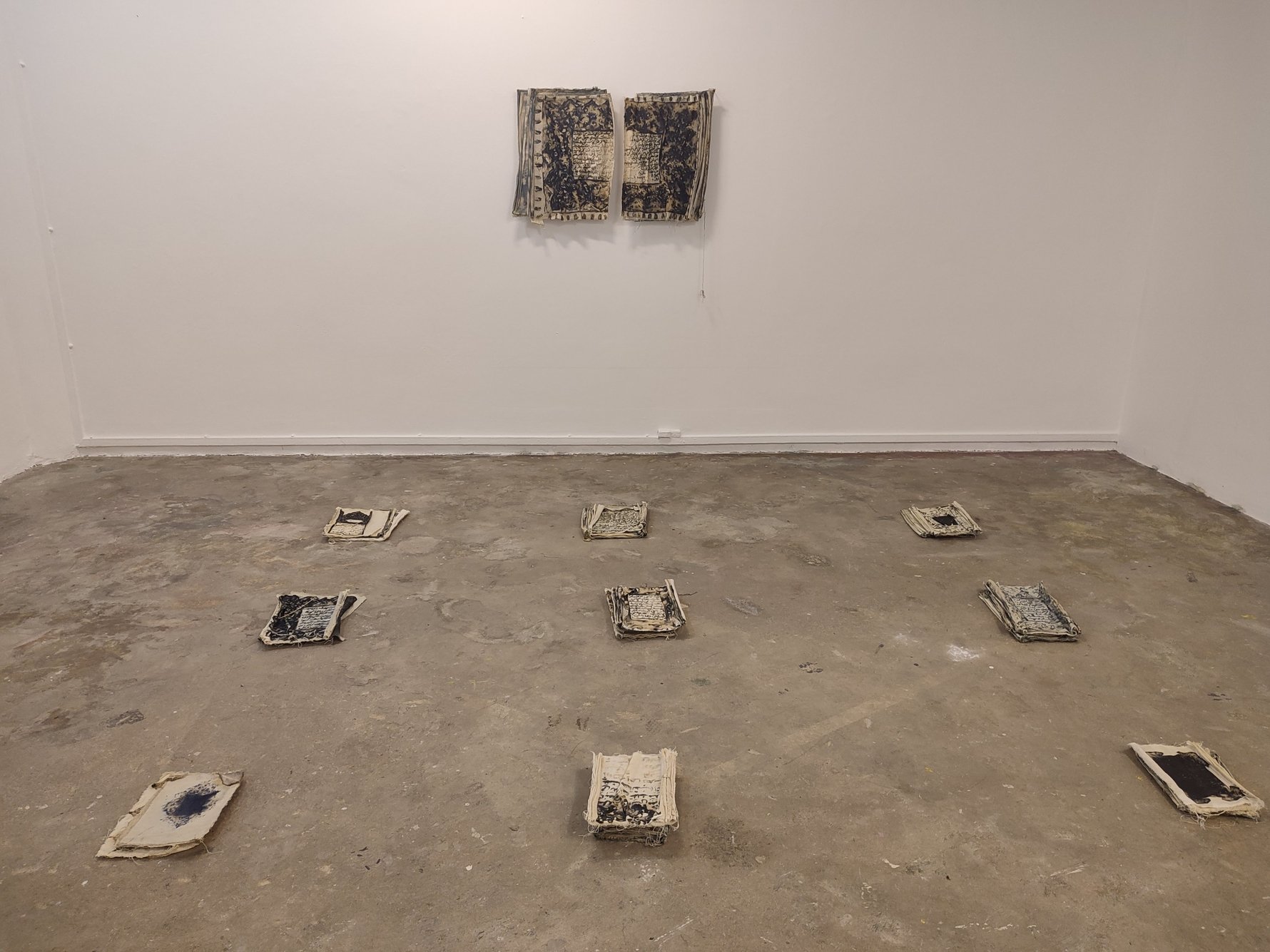The title of this exhibition – koples boek(e) – refers to the student notebooks used by the Cape Muslim community in the 19th Century and the version of ''Arabic-Afrikaans''' that was recorded in them. It is a fascinating and powerful evocation of a form of language that has since 'died' but which was born out defiance.

In the 19th Century, Afrikaans was still considered a vernacular language in the Cape. A spoken language that was not written or read. However, the enslaved Cape Muslim communities of the time did indeed record their language on paper, using the Arabic script that was learned in madrassahs. The creolised Afrikaans of the Cape Muslim community was phonetically transcribed in an Arabic script particular to the community in a blatant rejection of the Roman alphabet used by the Dutch colonialists.
Over time Arabic-Afrikaans was finally subsumed by the Roman alphabet, although in recent years texts, particularly the koples boek(e), have been rediscovered and an awareness and interest in this form of writing is emerging again.

Working with dipped ink, bleach and glue on vast stripped canvases, Bineshtarigh leaves layers of Arabic-Afrikaans inscriptions that fade into one another and drip down the canvases. They lie in piles on neatly arranged pages and seem to almost burn through book-like imagery on the walls. It's a powerful visual evocation of the suggestion of erasure, the process of (il)legibility and the embedded structures that determine whose languages are read and how.
PANEL DISCUSSION AND CAPE MALAY FOOD EXPERIENCE
On Sat Mar 26 at 11:00 the Goethe-Institut hosts a panel discussion with the artist reflecting on the politics and poetics of Arabic-Afrikaans, the history of this form of expressions and the ways in which language and memory is appropriated, expressed and shared in public and in the practice of artmaking.The panelists at the discussion include: artist Kamyar Bineshtarigh, journalist, archivist and curator Atiyyah Khan, performance poet Lesego Rampolokeng, Arabic scholar Abdud-Daiyaan Petersen from the University of Cape Town, and curator of the koples boek(e) exhibition Amogelang Maledu.
Following the discussion Future Nostalgia’s El Corazon will be playing a one-hour DJ set while the gallery host a Cape Malay cuisine-inspired food experience by Lady Day.


-1_m.jpg)
_m.jpg)
_m.jpg)

